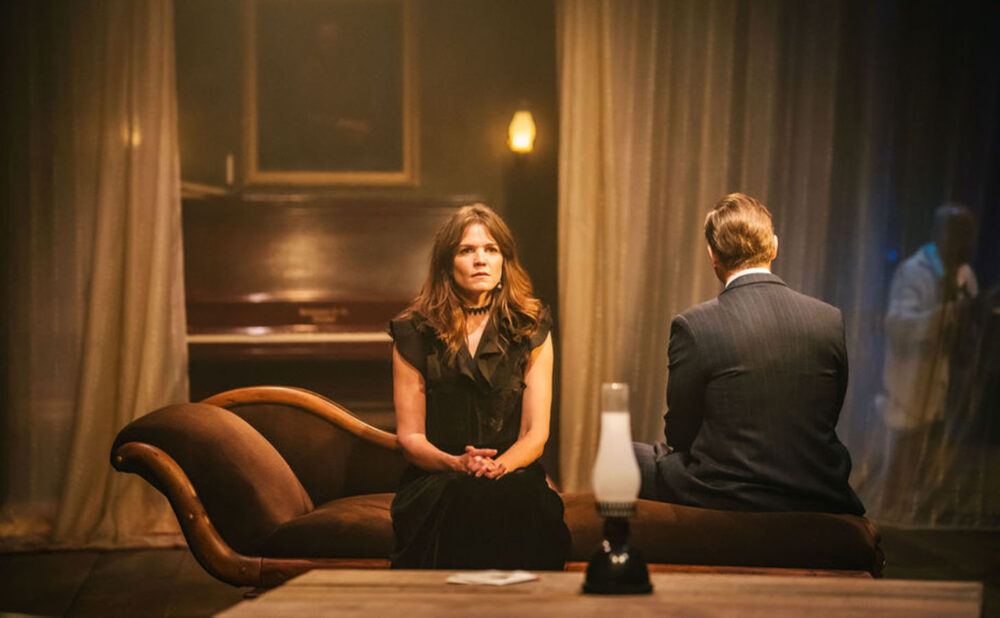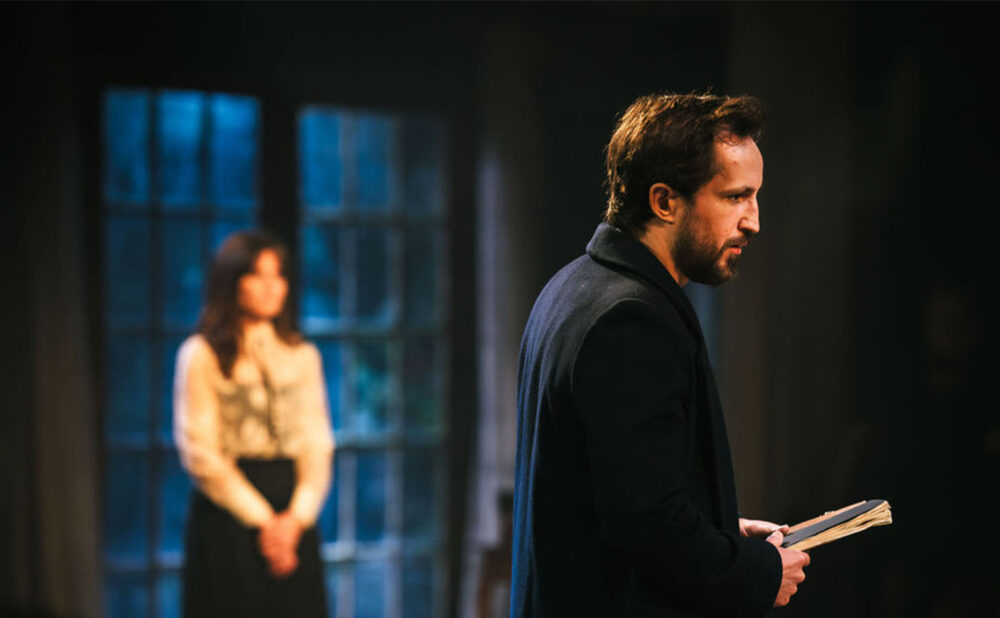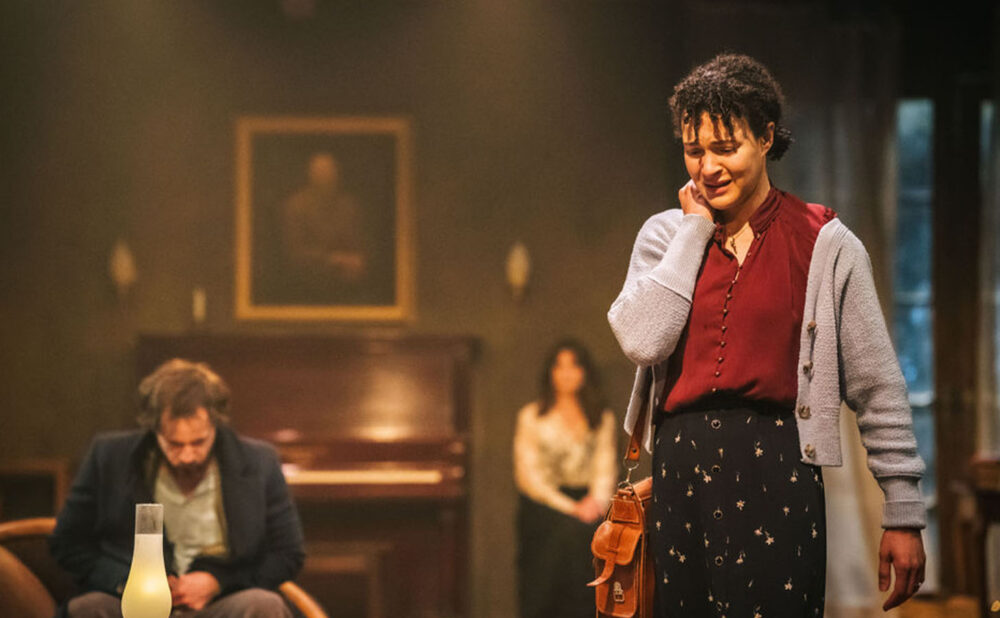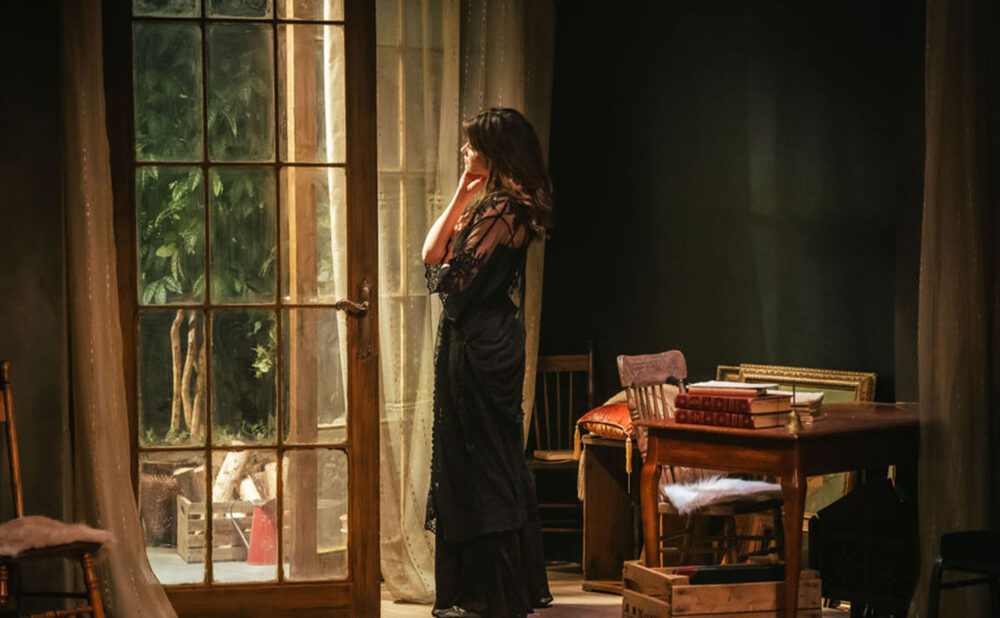Review: Coal Mine Theatre ends season with eerie and psychological ‘Hedda Gabler’
Diana Bentley takes on title role in final show as co-artistic director
What: Hedda Gabler
Where: Coal Mine Theatre, 2076 Danforth Ave.
When: Now, until Sun., June 2
Highlight: Leah Doz’s live-wire performance as Thea Elvsted
Rating: NNN (out of 5)
Why you should go: It’s striking how alive, playful and even comic much of the show feels.
THE OPENING sequence of Coal Mine Theatre’s Hedda Gabler thrusts us into the title character’s mind. Isolated in light, her fingers wander up a piano’s keys, carving out a melody at once mournful and fleeting. As the tune climaxes, she hits one key over and over, a musical repetition paralleling the stifling monotony of her dusty home — not to mention the tedious antics of that bumbling medieval scholar she calls husband.
This surreal prelude, along with Moya O’Connell’s director’s note (“Hedda. Gabler. Let’s look at her again. From all sides”), sets up the production to explore the character’s psychology in depth. And Liisa Repo-Martell’s new adaptation snips the blubber, ensuring Ibsen’s play moves with swiftness (two hours and 15 minutes, including intermission), while Diana Bentley’s precise leading performance builds up Hedda’s fiery interior one piece of kindling at a time. The few times Hedda is left alone on stage, flames engulf the space.
Hedda married Jorgen Tesman (Qasim Khan) because a university in the Norwegian city they inhabit guaranteed him a well-paying professorship. But the return of fellow scholar Eilert Lovborg (Andrew Chown), a recovering alcoholic who just dropped a hit book in Jorgen’s field, complicates things; as the domineering Judge Brack (Shawn Doyle) warns Jorgen, he will now have to fight for his promised appointment. (Also central is Thea Elvsted, played by Leah Doz, a collaborator of Eilert who cares for him deeply.) These circumstances are perhaps not in themselves so dire, yet they set off Hedda and for opaque reasons she begins orchestrating trouble.
O’Connell is well-acquainted with the play’s ups and downs, having played the title role in a 2012 Shaw Festival production directed by Martha Henry. Anyone who’s only read Hedda may find it surprising how alive, playful and even comic much of the show feels. Khan bounds about like a golden retriever, transforming a character who can appear stuffy on the page into someone to root for while Doz pushes Thea’s worry for Eilert to emotional extremes, turning in a live-wire performance.
The earthy colour palette of Joshua Quinlan’s fairly detailed set evokes the original script’s 19th-century setting. But the angular shape of the living room chairs, as well as the detailing on a few of the costumes (Thea, for instance, sports sleek black boots and a long floral skirt), exude a contemporary aura. And since Hedda herself laments the house’s “historical” aesthetic, the question of what the world outside looks like is left fuzzy: just how antique is this villa, anyway? It’s fun to speculate about.
O’Connell and Bentley’s excavation of Hedda’s depths is most potent in the moments between scenes; during many of them, Emily Haines’s score throbs and Kaitlin Hickey’s lighting design gets eerie and theatrical. But, when it comes to the scenes themselves, the thrust staging can make it difficult to observe the title character. So often, Ibsen leaves her on the edge of the action — scheming, appraising, reacting. Traditional proscenium staging gives directors huge control over the stage image, meaning they can ensure we pay attention to Hedda even when the dialogue doesn’t ostensibly concern her. Yet here, Bentley’s careful work is often hidden behind other bodies. For a production that clearly means to spotlight the title character, this is a misstep — by the end, I found myself caring about Thea, Jorgen and Eilert just as much as I did Hedda.









